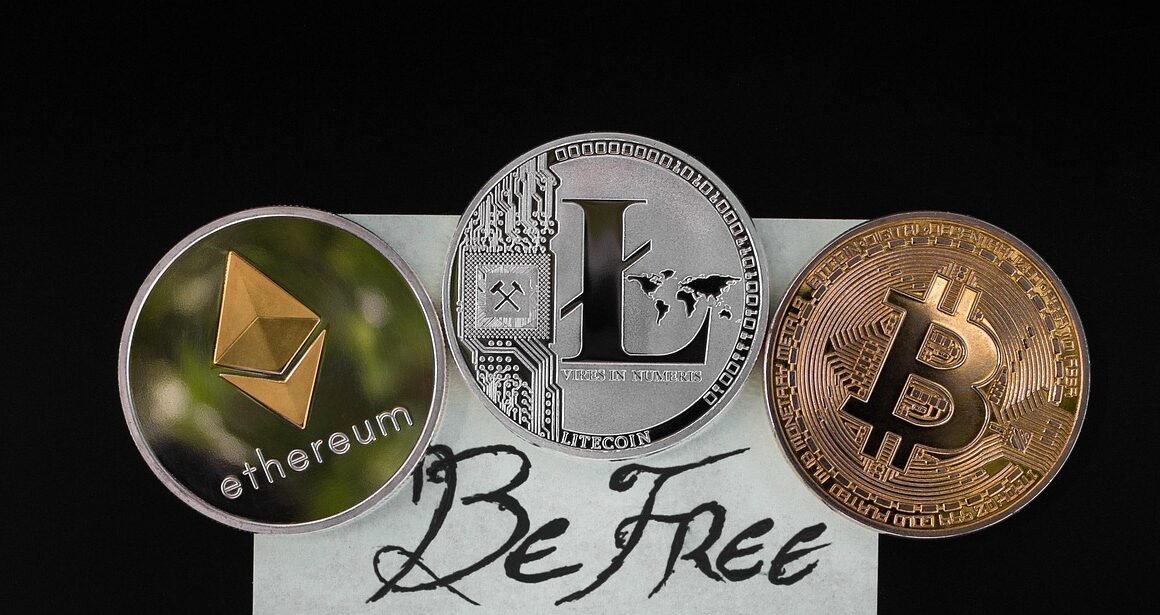Smart contracts are revolutionizing how agreements are made and enforced, cutting out intermediaries and injecting transparency and automation into various industries. Imagine a world where real estate transactions are instantaneous, supply chains are impeccably tracked, and voting systems are tamper-proof. This is the promise of smart contracts, and they are rapidly transforming the digital landscape. Let’s dive into the world of these powerful, self-executing agreements and explore their potential.
What are Smart Contracts?
Definition and Core Principles
Smart contracts are self-executing contracts written in code and stored on a blockchain. They automatically enforce the terms of an agreement when pre-defined conditions are met. Think of them as digital vending machines: once you insert the correct amount of money (meet the conditions), the machine dispenses the product (executes the agreement).
- Self-Executing: The contract automatically executes the terms of the agreement once the conditions are met, without the need for manual intervention.
- Immutable: Once deployed on the blockchain, the code of a smart contract cannot be altered, ensuring transparency and preventing fraud.
- Decentralized: Stored across a distributed network, smart contracts are resistant to censorship and single points of failure.
- Transparent: All transactions and code are publicly visible on the blockchain (depending on privacy settings), fostering trust and accountability.
How Smart Contracts Work
Smart contracts operate on a simple “if-then” logic. They are written using programming languages like Solidity (for Ethereum) or Vyper. Here’s a simplified example:
“`solidity
pragma solidity ^0.8.0;
contract SimpleContract {
uint public balance;
function deposit() public payable {
balance += msg.value;
}
function withdraw(uint amount) public {
require(balance >= amount, “Insufficient balance.”);
payable(msg.sender).transfer(amount);
balance -= amount;
}
}
“`
This contract allows users to deposit Ether and withdraw it, ensuring that a user cannot withdraw more than their balance. The steps are:
Benefits of Using Smart Contracts
- Increased Efficiency: Automating processes eliminates intermediaries and reduces delays.
- Enhanced Security: Immutability and cryptographic security make smart contracts resistant to tampering.
- Reduced Costs: Automation reduces administrative overhead and transaction fees.
- Improved Transparency: Open and auditable code fosters trust and accountability.
- Increased Trust: Eliminates the need to trust a central authority as the contract executes itself.
Use Cases of Smart Contracts
Supply Chain Management
Smart contracts can streamline and secure supply chains by tracking goods from origin to consumer. For example:
- Tracking Product Provenance: Each step in the supply chain can be recorded on the blockchain, verifying the authenticity and origin of products.
- Automated Payments: Payments can be automatically triggered when goods reach specific milestones, such as arrival at a warehouse.
- Improved Transparency: All parties in the supply chain can access real-time information about the location and condition of goods.
A practical example is using smart contracts to track organic coffee beans. The contract can record details like the farm of origin, processing methods, and transportation details. Consumers can scan a QR code on the packaging to verify the coffee’s authenticity and ethical sourcing.
Decentralized Finance (DeFi)
Smart contracts are the backbone of DeFi applications, enabling lending, borrowing, trading, and other financial services without intermediaries.
- Automated Lending and Borrowing Platforms: Smart contracts manage loan agreements, interest rates, and collateral.
- Decentralized Exchanges (DEXs): Smart contracts facilitate peer-to-peer trading of cryptocurrencies without a central order book.
- Yield Farming: Smart contracts automatically allocate funds to different DeFi protocols to maximize returns.
- Example: A DeFi lending platform uses smart contracts to match lenders and borrowers, calculate interest rates based on supply and demand, and automatically distribute rewards to lenders.
Real Estate
Smart contracts can simplify and expedite real estate transactions.
- Automated Escrow Services: Smart contracts can hold funds in escrow and automatically release them when all conditions of the sale are met.
- Tokenized Real Estate: Real estate assets can be fractionalized into tokens, making them more accessible to investors.
- Reduced Paperwork: Digital contracts eliminate the need for physical documents and manual processes.
- Example: A smart contract can automatically transfer ownership of a property once the buyer’s payment is confirmed and all legal requirements are met. This reduces the time and cost associated with traditional real estate transactions.
Healthcare
Smart contracts can improve data security and interoperability in healthcare.
- Secure Electronic Health Records (EHRs): Smart contracts can control access to patient data, ensuring privacy and security.
- Automated Insurance Claims Processing: Smart contracts can automatically process insurance claims based on pre-defined criteria.
- Supply Chain Management for Pharmaceuticals: Smart contracts can track the distribution of pharmaceuticals, preventing counterfeiting and ensuring the integrity of the supply chain.
- Example: A patient’s medical records can be stored on a blockchain, and smart contracts can be used to grant access to specific doctors or specialists.
Choosing the Right Blockchain Platform
Ethereum
Ethereum is the most popular blockchain platform for smart contracts, known for its mature ecosystem and extensive developer tools.
- Solidity Programming Language: Ethereum uses Solidity, a popular language specifically designed for writing smart contracts.
- Large Community: Ethereum has a large and active community of developers, providing ample support and resources.
- EVM Compatibility: The Ethereum Virtual Machine (EVM) is the runtime environment for smart contracts on Ethereum, ensuring compatibility across different nodes.
Other Blockchain Platforms
While Ethereum is dominant, other platforms offer unique advantages:
- Cardano: Known for its research-driven approach and focus on scalability and security.
- Solana: Offers high transaction speeds and low fees, making it suitable for DeFi applications.
- Polkadot: Enables interoperability between different blockchains, allowing smart contracts to interact with each other.
- Tezos: Features on-chain governance, allowing the blockchain to evolve and adapt to changing needs.
Factors to Consider
When choosing a platform, consider:
- Transaction Fees: Some blockchains have lower fees than others, which can be important for applications with high transaction volumes.
- Scalability: The platform’s ability to handle a large number of transactions per second.
- Security: The platform’s security mechanisms and track record.
- Developer Ecosystem: The availability of developer tools, libraries, and support resources.
- Governance Model: The way the blockchain is governed and how decisions are made.
Challenges and Limitations
Security Vulnerabilities
Smart contracts are susceptible to security vulnerabilities that can be exploited by malicious actors.
- Reentrancy Attacks: Vulnerabilities that allow attackers to repeatedly call a function before the first call is completed, potentially draining funds.
- Integer Overflow/Underflow: Arithmetic errors that can lead to unexpected behavior and vulnerabilities.
- Logic Errors: Mistakes in the code that can lead to incorrect execution of the contract.
- Mitigation Strategies: Thorough auditing, formal verification, and security best practices are essential to minimize the risk of vulnerabilities.
Scalability Issues
Many blockchain platforms struggle to handle a high volume of transactions, which can lead to congestion and high fees.
- Layer-2 Solutions: Technologies like rollups and state channels can help scale smart contract execution by processing transactions off-chain.
- Sharding: Dividing the blockchain into smaller, more manageable pieces to improve transaction throughput.
- Consensus Mechanisms: Innovative consensus mechanisms, such as Proof of Stake (PoS), can improve scalability compared to traditional Proof of Work (PoW).
Legal and Regulatory Uncertainty
The legal and regulatory landscape surrounding smart contracts is still evolving, which can create uncertainty for businesses and users.
- Contract Enforceability: The legal enforceability of smart contracts is still being tested in courts around the world.
- Data Privacy Regulations: Smart contracts must comply with data privacy regulations, such as GDPR, which can be challenging due to the immutable nature of the blockchain.
- Tax Implications: The tax implications of smart contract transactions are still being clarified by tax authorities.
Conclusion
Smart contracts represent a paradigm shift in how agreements are made and executed. While challenges remain, the potential benefits of increased efficiency, enhanced security, and reduced costs are undeniable. From revolutionizing supply chains to powering decentralized finance, smart contracts are transforming industries and shaping the future of the digital world. As the technology matures and regulatory frameworks become clearer, smart contracts will play an increasingly important role in our economy and society. Staying informed about the latest developments and best practices is crucial for anyone looking to leverage the power of these innovative agreements.



